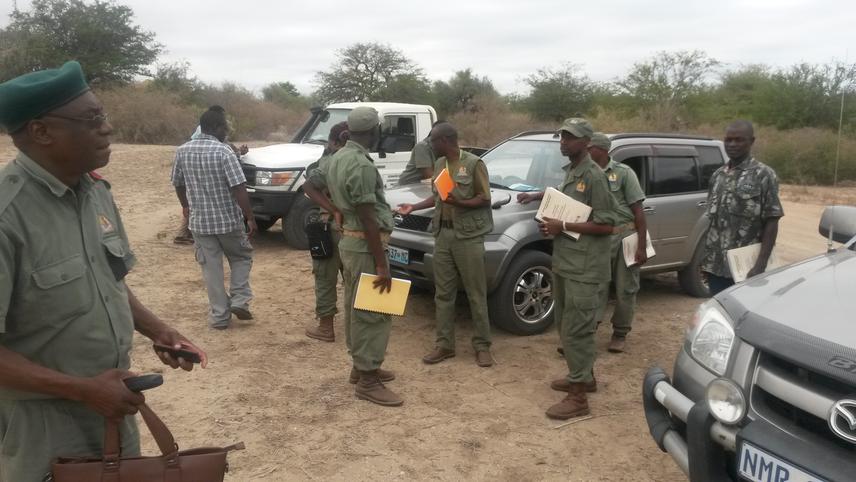Timothy Snow
By a short course of lectures, field training and subsequent field support, we aim to build a community of practice to enable Rangers to understand and competently investigate and prosecute wildlife poisoning crimes.

Trainees arrive at field practical (with their training manuals).
In Southern Africa, poachers are more and more frequently using poison to kill lions, elephants and other animals for the illegal wildlife trade. The poisoning events have a catastrophic knock – on from secondary poisonings. Carcases of poached animals are often poisoned to kill vultures which reveal the locality of the kill when they circle up on thermals. Elephant tusks are sold illegally into the East, as are rhino horns, lion bones, and many other wildlife products. The vulture heads and feet are sold on markets as traditional remedies or for superstitious beliefs. Hundreds of vultures are being poisoned annually and we know of at least 220 vultures reported to have been killed by poisoning in South Africa from January 2015 to date. Ornithologists believe that population attrition exceeds accrual. Foraging parents cover vast areas (proven by telemetry and re-sighting of marked birds). When feeding on poisoned carcasses they are poisoned and may feed toxins to nestlings, or nestlings starve when parents do not return.
We have identified the central region of Kruger National Park as a hotspot. We intend to conduct training at in the area, drawing rangers in from the Greater Limpopo Trans-frontier Conservation Area for training. We intend to train thirty rangers to competently investigate poisoning crime scenes and to pursue the case with police and the judiciary to courts for prosecution. Training will be done is the form of a lecture course, followed by two practical field based follow-up training support events and will include DNA sample collection, practical crime scene investigation, forensic pathology, forensic photography, sample and evidence collection, handling samples, handling owners and accused, handling animals, physical matches and identification.
We intend that after completion of this course, the rangers should have the proficiency to deal with a forensic investigation of dead wildlife in cases where poisoning is suspected. We hope to minimise poisoning events by training, communication, by good investigations and by prosecutions; and we hope to minimise the poisoning of wildlife and the vulture mortality trend in southern Africa.